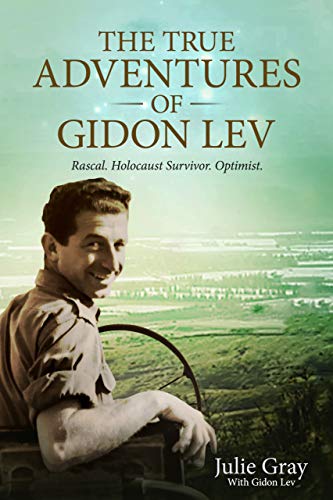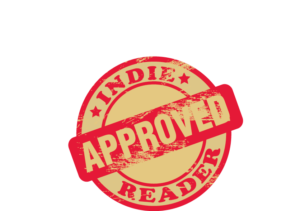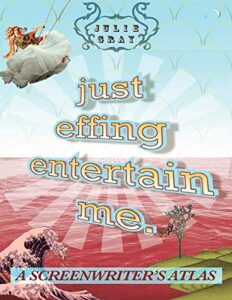The True Adventures of Gidon Lev received a 4+ star review, making it an IndieReader Approved title.
Following find an interview with author Julie Gray.
What is the name of the book and when was it published?
The True Adventures of Gidon Lev: Rascal. Holocaust Survivor. Optimist. was published on June 30th, 2020.
What’s the book’s first line?
“On the face of it, The True Adventures of Gidon Lev is the story of an elderly Holocaust survivor – a man who made it through horrifying events and lived to tell the tale.”
What’s the book about? Give us the “pitch”.
The True Adventures of Gidon Lev is a quirky take on the usual “Holocaust narrative. It’s an uplifting, life-affirming story of an elderly man who was once a child survivor of a Nazi concentration camp, and the writer, thirty years his junior, who brought his story to life.
What inspired you to write the book? A particular person? An event?
Meeting the subject of the book! Although at first, I didn’t want to write the book! I felt I wasn’t qualified enough to delve into that much history, of not just the Holocaust but of Israel. But because there are so few Holocaust survivors left alive to share their experiences and antisemitism is on the rise, I felt I really had a moral obligation to not just write the book, but to write it from my heart.
What’s the main reason someone should really read this book?
First, I think that Gidon’s story is just so remarkable; he really is quite a character. He is one of the happiest, most determined, cheerful people I have ever met for a person who has seen such horrors in his lifetime. I just love his attitude; to Gidon, every day is a new day, and the small pleasures are essential. I learned so much about life and how to live it through Gidon, and I think readers will be similarly inspired.
Another reason people should read this book is that, as Mark Twain is purported to have said, “history doesn’t often repeat, but it sometimes rhymes.” I don’t mean to imply that something as awful as the Holocaust could happen again. Instead, I mean that it is vital to contextualize current events within the backdrop of what came before. Things don’t seem to make much sense these days, but familiarizing yourself with history can give us some sense of why things are the way they are and how we view ourselves as individuals within all that.
As one example, I spent a lot of time in the book talking about modern-day Israel’s culture and life, a place that is often either idealized or condemned. I took a deep dive into what makes Israelis Israeli, where they came from, and why. Through those observations, readers can think about their own country’s narrative and belief systems and how it was affected by history, geography, and many other variables. I believe it is crucial for us to think about our identities and how we came by them. We can grow from that experience.
If they made your book into a movie, who would you like to see play the main character(s)?
Well, if you asked Gidon, he’d probably say Brad Pitt!
Is this the first book you’ve written?
No, actually, my first book, which I also published independently, is called “Just Effing Entertain Me: A Screenwriters Atlas. It’s a handbook for screen and prose writers who want to write more cinematically, understand the essential elements of storytelling and get a glimpse into Hollywood’s gatekeeping culture.
What do you do for work when you’re not writing?
I am fortunate; I work with writers! I am a developmental or “story” editor, and I work with fiction and creative nonfiction writers. I started out many years ago working in Hollywood as a story analyst, so I learned what to look for in fantastic stories in a highly competitive environment.
How much time do you generally spend on your writing?
I’m a binge-writer. I have to work at my day job and do all the everyday things we all need to do in life, but when there’s something I’m dying to write – I just shut off the world and do it. For The True Adventures of Gidon Lev, I spent almost 2 and a half years researching and organizing the source material and then about six completely focused months, only writing, from first thing in the morning until I was exhausted, in the early evening. I’ve been working on a book that is really the prequel to Gidon’s book, a memoir about moving from Los Angeles to the Middle East. It’s called “They Do Things Differently Here,” and I have it about 50% completed. I know some writers write a little bit each day – I just can’t get with that kind of discipline; it doesn’t inspire me. I write when I just have to write and then just try and stop me.
What’s a great piece of advice that you can share with fellow indie authors?
I have worked with many, many writers over time, on the story end of things, and I genuinely believe that is the most central key element of all – to have written something that people will enjoy reading and be entertained by. Nothing else matters.
But that said – once you’ve achieved that (and you know you have because you worked with a great editor, and you used qualified beta readers, and you killed your darlings), then it’s a matter of presenting that book at its absolute best. Make sure to hire an excellent team to help you get across the finish line. This is so key because there are so many indie books out there that you have to stand out with a great cover, excellent formatting, zero errors, etc. It’s really worth it, and you get what you pay for. And yes, it can be costly. But you can know this in advance, and save and budget and plan it all out.
The best story ever might go unread because the cover art is lousy, and it wasn’t copy-edited. The worst story ever with a great cover, marketing, author website, etc. might have more visibility, but it won’t get good reviews. You have to hit all of the marks – starting with the quality of the story itself and then going from there. I think indie writers need to internalize that while writing is a solitary endeavor, publishing is collaborative.
I also think that writers need to ask themselves why their book should matter to readers given all the other choices we have today, to be entertained. Why should a reader pick up your book, rather than a different one? Put yourself in the shoes of a reader; think about what you read, when and why. Don’t write only for yourself – write to be read.
Would you go traditional if a publisher came calling? If so, why?
I tried the traditional route, initially, but I was told that “the Holocaust is too depressing” or that “there are too many books about the Holocaust.” That just got me going. Remember, I used to be a “gatekeeper” myself, when I worked in Hollywood, so I “get” the other side of the equation, in which decisions are made based on moving parts that are extremely risk-averse and sometimes just whimsical. So I decided to do an end-run around the “establishment” of the publishing world and simply write what I thought was an important book. If I can prove my point with indie sales and a traditional publisher came calling, at this point, I’d love it. But that said, my main goal was to write a good book that honored Gidon’s life and commemorated the lives of the millions of others who died at the hands of the Nazis. I have done that, so I’m pretty happy.
Which writer, living or dead, do you most admire?
As a serious bibliophile, I couldn’t possibly name just one! The shortest list I can try to come up with is a wildly varied one, of writers who have made me laugh, cry, jump out of my skin, or reread passages over and over in amazement. These are just a very few writers that have made my life so much richer; I had even a fraction of their talent, I would die happy: Janet Frame, Virginia Woolf, Sayed Kashua, Ta-Nehisi Coates, Bill Bryson, Amoz Oz, Richard Yates, John Cheever, Toni Morrison, Muriel Spark, Etgar Keret, James Joyce, Leonid Tolstoy, Fyodor Dostoevsky, Ann Patchett, Sady Doyle, John Ajvide Lindqvist, Stephen King, Alice Walker and of course, the great, great F. Scott FitzGerald.


